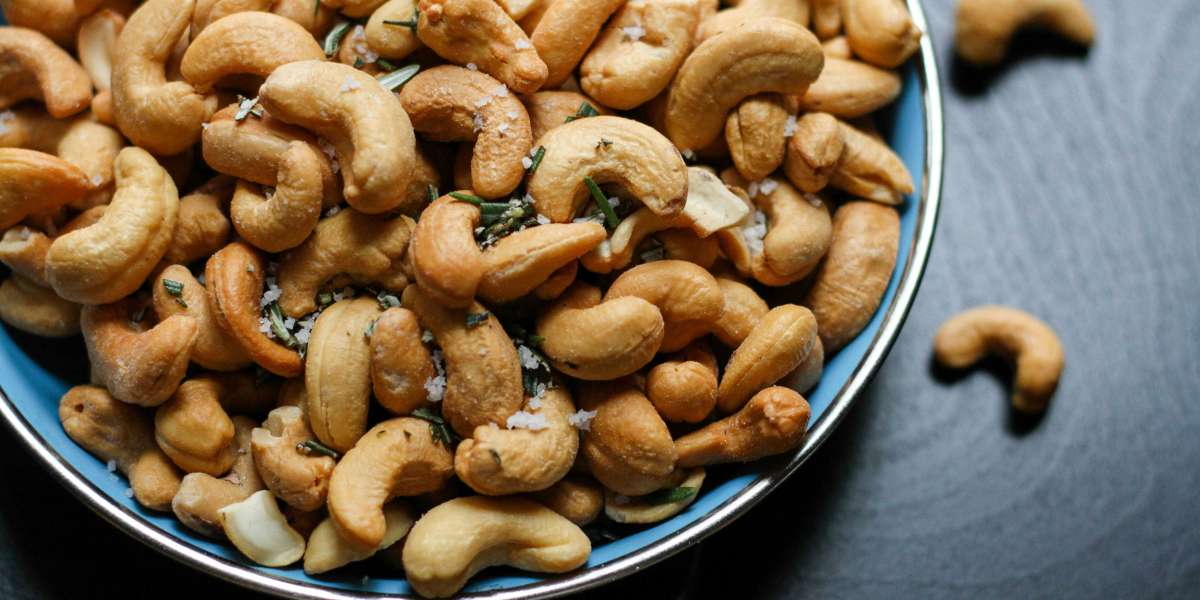Compare cashews with almonds, walnuts, and more. Learn why cashews stand out and whether cashews price in Pakistan makes them worth adding to your daily diet.
When it comes to healthy snacking, nuts are the go-to choice for many. They’re packed with nutrients, easy to carry, and great for curbing hunger throughout the day. But with so many types available—almonds, walnuts, pistachios, cashews, and more—it’s fair to ask: which nut is the best for you?
This comparison becomes even more important when considering cost and availability. For instance,
In this post, we’ll dive deep into the nut world and help you decide whether cashews deserve the top spot in your pantry.
1. Nutritional Snapshot: What’s Inside a Cashew?
Cashews are known for their buttery texture and mildly sweet flavor. But they’re also nutrient-rich. A 28g (1 oz) serving of cashews contains around:
155 calories
5g protein
12g fat (mostly unsaturated)
1g fiber
High levels of magnesium, copper, and zinc
Cashews provide essential minerals that support bone health, immunity, and brain function. Compared to almonds or walnuts, they have slightly less fiber but more iron and zinc—making them great for people with mineral deficiencies.
That said, all nuts bring something unique to the table, so the best one often depends on your health goals.
2. Cashews vs. Almonds: The Nutrient Showdown
Almonds are widely regarded as the "healthiest nut" by many, and for good reason. They have more fiber (3.5g per ounce), more vitamin E, and a bit more protein than cashews. However, cashews have a softer texture and are more versatile in recipes like vegan cheese or creamy sauces.
In terms of taste, cashews tend to appeal to a broader palate because of their mild and creamy flavor. Almonds are crunchier and slightly bitter, especially with skins on.
Price-wise,
3. Cashews vs. Walnuts: Heart and Brain Health
Walnuts are a powerhouse for omega-3 fatty acids, especially alpha-linolenic acid (ALA), which supports heart and brain health. If you're looking to improve cognitive function or reduce inflammation, walnuts are a solid choice.
Cashews, on the other hand, offer a broader spectrum of minerals like magnesium, which plays a key role in muscle function, blood sugar regulation, and stress reduction. They also contain tryptophan, which supports mood and sleep.
While walnuts can taste bitter and are often used in baking or salads, cashews are more snack-friendly and enjoyable for a wider range of people. Depending on the
4. Cashews vs. Pistachios: The Protein Battle
Pistachios often get credit for being one of the best high-protein nuts. They contain around 6g of protein per ounce, making them a favorite among gym-goers and athletes. They also boast more fiber than cashews and are rich in antioxidants like lutein and zeaxanthin, which support eye health.
Cashews, however, excel in their creamy texture, making them perfect for dairy alternatives like cashew milk or cashew butter. Pistachios are fun to eat, especially when shelled, but can be a bit more labor-intensive.
In terms of cost,
5. Cashews vs. Peanuts: Budget vs. Benefits
Though technically legumes, peanuts are often grouped with nuts and are much more affordable. They offer solid protein, some fiber, and healthy fats, making them a budget-friendly choice.
However, cashews stand out with a more favorable fat profile, fewer allergenic compounds, and a better taste experience. Peanuts can sometimes contain aflatoxins, which are harmful in large quantities if not properly processed.
If budget is your main concern, peanuts may be your go-to. But if you’re looking for a nut that combines health, taste, and versatility—and you don’t mind spending a little more—cashews are worth every rupee, especially considering the
6. Cashews and Lifestyle Compatibility
Different nuts suit different lifestyles. Cashews are ideal for:
Busy professionals looking for clean, on-the-go snacks
Fitness enthusiasts who want post-workout magnesium
Vegans seeking non-dairy alternatives
Parents preparing nutrient-rich lunchboxes for kids
Their neutral flavor and rich texture make them easy to add to meals, desserts, sauces, or smoothies. You can also roast them with spices, toss them into curries, or blend them into soups for a creamy base.
And thanks to increased availability,
Final Thoughts: So, Which Nut Wins?
Here’s the truth: there’s no single “best” nut. Each one has unique benefits, and ideally, your diet should include a mix of them. That said, cashews offer a rare blend of taste, texture, nutrition, and versatility.
If you value smooth flavor, creamy mouthfeel, and broad health benefits—from improved mood to stronger bones—cashews deserve a top spot in your pantry.
They may cost a little more, but when you consider the experience they deliver and the nutrients they pack,




















